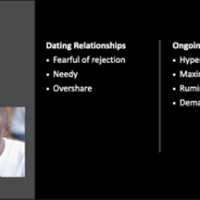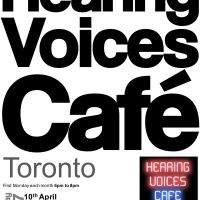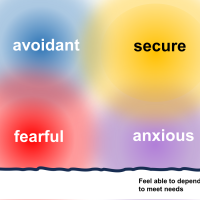

Report from Western Australia on research showing link between insufficient vitamin B in diet and what researchers call “externalisation of problems “, which appears as agitation and aggression, “acting out” and results in them being called delinquent; and “internalisation of problems” such as withdrawing, anxiousness, trouble sleeping – and which typically get labelled “mentally ill”.
So, before you get your kid labelled “mentally ill” and stuck in a lifetime taking colourful little pills, it might first be worth having their vitamin levels checked.
I know, I know: kids and vegetables, but …..colourful food or colourful little pills?
Chronic stress and long term use of psychiatric meds are two common causes of low vitamin metabolisation. So if you’re already taking a bunch of colourful little pills, it might also be worth checking your own vitamin levels too.
Vitamin B deficiency linked to troubled teens
Tuesday, 23 October 2012 10:00
“We were surprised to find that externalising problems were significantly associated with reduced intake of B1, B2, B5, B6 and folate.”—Prof Oddy. Image: Kate Hisock
A RECENT Western Australian study is the first to report that low vitamin B-intake is strongly linked to delinquency and aggression in 17 year-olds.
The study, ‘Low intake of B-vitamins is associated with poor adolescent mental health and behaviour’, examines the intake of eight B-complex vitamins (B1-thiamine, B2-riboflavin, B3-niacin, B5-pantothenate, B6, biotin, folate and B12-cobalamin) and their impact on externalising problems, such as delinquency and aggression, and internalising problems, such as being withdrawn, anxious or depressed and experiencing sleep difficulties.
Professor Wendy Oddy from the Telethon Institute of Child Health Research says the adolescent population study revealed an increased dietary intake of B-vitamins was significantly associated with increased measures of psychological wellbeing.
“It’s plausible that certain foods or vitamin supplements ensure optimal biochemical performance and improve mood and mental functioning, particularly where deficiencies exist,” Prof Oddy says.
“The mechanisms by which vitamin deficiency may impact externalising behaviours have rarely been studied and we were surprised to find that externalising problems were significantly associated with reduced intake of B1, B2, B5, B6 and folate.”
Other research has shown that young prisoners or delinquent school children, supplemented with B-vitamins and minerals were found to decrease their incidence of aggressive behaviour.
Researchers have suggested that poor vitamin nutrition affecting early brain function may predispose to antisocial and violent behaviour by affecting cognitive functions.
This study also found that low vitamin B6 and folate intake were associated with more internalising disorders, although not to the same degree.
Researchers analysed the findings of the Raine Western Australian Pregnancy Cohort Study; a prospective, longitudinal study that began in 1989 and involved 2,009 Australian women and their children from birth to 17 years of age.
At the 17-year follow-up, 835 subjects completed a Youth Self Report to assess mental health behaviour and the CSIRO 212-item food frequency questionnaire which enabled measurement of vitamin intake.
The study recommends that the role of B-vitamins requires further investigation.
“A diet rich in B-vitamins is required for optimal brain functioning and the production of neurotransmitters such as serotonin so promotion of a diet rich in nuts, seeds, whole-grains, legumes, and fruit and vegetables would be useful,” Prof Oddy says.
The Raine Study is funded by the University of Western Australia, the Raine Medical Research Foundation, the National Health and Medical Research Council of Australia, the Telethon Institute for Child Health Research, the UWA Faculty of Medicine, Dentistry and Health Sciences, Women and Infants Research Foundation and Curtin University.
Related articles
- Low Levels of Vitamin B Negatively Affect Child’s Behavior (medicaldaily.com)
- Vitamin B crucial for children’s health (bigpondnews.com)



































































































Great post.
LikeLike
Grazie!
LikeLike
Good to see you posting this. So much of what is called ‘mental illness’ is just nutritional and easily reversed. James Greenblatt-psychiatrist- writes a lot about this too. Eat your greens. And check out neurologist David Perlmutter’s book/site GRAIN BRAIN…..Best, Maie Date: Mon, 16 Sep 2013 13:55:53 +0000 To: maieliiv@sympatico.ca
LikeLike
Excellent article. Very Help full as I have been recently diagnosed with extreme low vitamin B-12 dificiency.
LikeLike
good post. most common is B12 deficiency. see book ‘Could It Be B12’. big probelm with vegetarians. we’ve talked about gluten before – many of these deficiencies come about because of silent damage to the intestinal mucosa by gluten. not able to absorb nurients properly. and then comes the mood disorder label which isn’t a mood disorder at all but a nutrient deficiency. Stress also depletes B vitamins.
LikeLike
Thanks Maii. just found stuff on “could it be B12″…coming soon
gotta get outside ….
LikeLike